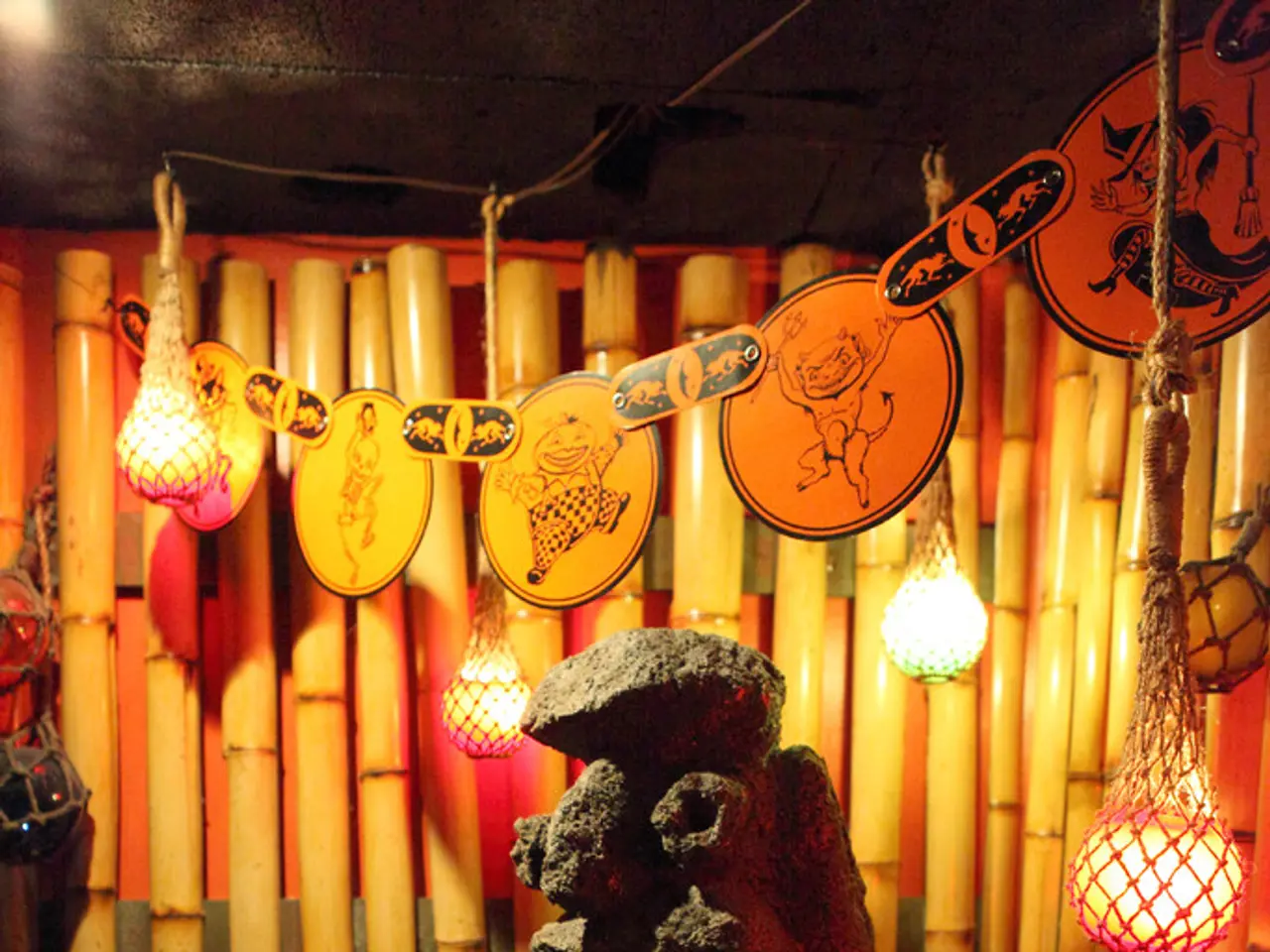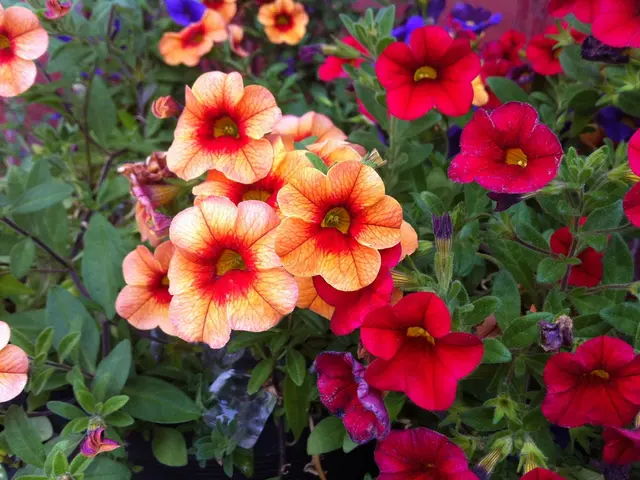Yoruba Mythology's Primordial Deity: Yemoja, Known as the All-Encompassing Water Goddess
Yemoja stands as one of the most powerful and enduring figures in Yoruba mythology, embodying the delicate balance between protection and punishment. Known as the Mother of All Waters, she is a central deity in the Yoruba pantheon, as well as in Afro-Caribbean traditions such as Santería in Cuba and Candomblé in Brazil.
Yemoja's mythology is rich and complex, reflecting the interplay between her nurturing and destructive aspects. Some myths reveal her kindness and protective nature, as shown by her stilling a storm to save sailors. However, her flood was not only an act of wrath but also a lesson, reminding humanity of the real dangers of rivers and oceans.
Yemoja is associated with a myth where her body was broken open, causing rivers to pour out and giving rise to life. This act of creation underscores her role as a nurturing mother, but also hints at her fierce power. When ignored, Yemoja can be fierce, but when approached with respect and love, she can be tender.
Yemoja rules rivers, streams, and seas, and her name means 'Mother of Fish'. Offerings to Yemoja often include fruits, molasses, coins, and flowers, and are placed in rivers or at the seashore. Her influence spread beyond Africa through the transatlantic slave trade, and she remains a central deity in many Afro-Caribbean traditions.
Yemoja is linked to cleansing and renewal, with rituals often involving water to wash away negativity and restore balance. She is seen as wise, compassionate, and deeply tied to the moon, whose cycles influence the tides she rules. Symbols associated with Yemoja include blue and white, fish, seashells, water vessels, and the moon.
In many traditions, Yemoja is described as the mother of countless Orishas. She is honoured as both a nurturing mother and a fierce guardian, protecting women, especially during childbirth, and watching over families. Her role as a guardian extends to the everyday lives of her followers, where she is present and ever-vigilant.
Yemoja began being worshipped among the Yoruba people of West Africa, particularly along the Ogun River in Nigeria. Her influence and worship spread, and today, the most important centers of Yemoja worship are in Nigeria and other parts of the Yoruba homeland in West Africa, as well as in the African diaspora countries such as Cuba and Brazil.
Yemoja shares traits with other water deities such as Tethys (Greek), Amphitrite (Greek), Rán (Norse), Sedna (Inuit), and Tlaloc (Aztec). Her dual nature of blessing and destruction echoes that of Tlaloc, an Aztec rain and water god. Both deities embody the complex relationship humans have with water, a force that can both nourish and destroy.
In conclusion, Yemoja stands as a powerful and enduring figure in Yoruba mythology, embodying the balance between protection and punishment. Her influence extends beyond Africa, making her a global figure in the tapestry of divine beings who embody the mysteries of the natural world.
Read also:
- Mondelez prioritizes sustainability in its day-to-day business operations, with Kinh Do being no exception.
- Uncover Five Distant Money-Making Opportunities, Ready to Kickstart and delivering a daily earnings of $100 each.
- Gathering Gujarat's entrepreneurial community in the Innovation Dialogues hosted by our foundation, aiming to boost the pace of inclusive entrepreneurship and growth in Small and Medium Businesses.
- Mouth Cancer Symptoms, Identification, and Management Strategies







